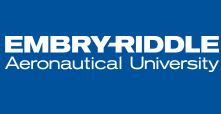
Volume
16
Issue
2
Abstract
An aging aerospace workforce coupled with declining student interest and skills beginning at the secondary level and running through the doctoral level has prompted a potential crisis in the aviation/aerospace industry. The Bureau of Labor Statistics estimated that 54 percent of U.S. aerospace workers over age 45 will leave the field by 2008 opening up some six million aerospace jobs. If the existing trends continue, there will not be enough workers to fill those positions which are vital to the U.S. economy and security. Aerospace employment is at its lowest in 50 years (Aerospace Industries Association, 2004). Data from the Commission on the Future of the U.S. Aerospace Industry indicated that math and science performance of U.S. high school seniors ranks near the bottom internationally (2002). The Commission made the following recommendation: The Commission recommends the nation immediately reverse the decline in, and promote the growth of, a scientifically and technologically trained U.S. aerospace workforce. In addition, the nation must address the failure of the math, science and technology education of Americans. The breakdown of America's intellectual and industrial capacity is a threat to national security and our capability to continue as a world leader (p. xvi). The Commission further stressed the importance of taking action to improve math and science instruction across the entire education range--K-12 through graduate school. In an effort to encourage students to pursue scientific interests in aviation/aerospace, Aerospace Education Specialists working for the National Aeronautics and Space Administration (NASA) are involved in a relatively new effort to work with K-12 educators to provide in-classroom education about the field of aviation/aerospace. As former K-12 educators, these specialists are constantly looking for new and creative ways to convey to current K-12 educators the importance of aviation/aerospace careers to the future of the industry. And, as representatives of NASA, these specialists are trained and experienced in matching agency resources with the needs of educators.
Scholarly Commons Citation
Brown, D. M.,
Kutz, M. N.,
& Bliss, T.
(2007).
A Delphi Study: Expanding K-12 Student Knowledge and Interests in Aviation/Aerospace Recommendations from NASA Aerospace Education Specialists.
Journal of Aviation/Aerospace Education & Research, 16(2).
DOI: https://doi.org/10.15394/jaaer.2007.1470

